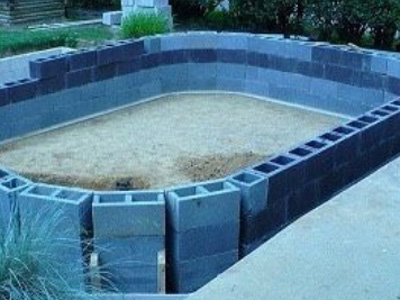7 Tips For New Pool Construction
 Pool contractors make mistakes that cost homeowners tens of thousands in repairs within five years of installation. Underground surprises, permit delays, and poor planning turn dream pools into financial nightmares. However, savvy homeowners research these critical construction factors before signing contracts to avoid expensive problems that plague rushed pool projects.
Pool contractors make mistakes that cost homeowners tens of thousands in repairs within five years of installation. Underground surprises, permit delays, and poor planning turn dream pools into financial nightmares. However, savvy homeowners research these critical construction factors before signing contracts to avoid expensive problems that plague rushed pool projects.
Nolascapes Pool & Outdoors LLC offers custom pool construction solutions and works systematically for the best results.
New Swimming Pool Construction Tips
Here are a few tips from our team that can prove helpful in new pool construction:1. Swimming Pool Location and Site Preparation Planning
- Underground utility lines create expensive complications when pool excavation damages gas, water, or electrical systems. Therefore, its necessary to organize utility marking at least three business days before excavation begins.
- Septic tanks, drain fields, and underground storage tanks require relocation of the pool or additional engineering costs.
- Hire professionals for soil testing
- Ensure proper grading to direct water away from pool structures
- Licensed pool contractors carry insurance protection that covers construction defects and worker injuries during installation, and you need to ensure this aspect.
- Verify licensing through state contractor boards and check complaint histories before signing contracts.
- Always check references from recent customers, as they reveal contractor reliability and work quality better than online reviews.
- Visit completed pools to examine construction quality and speak with homeowners about their installation experience. Ask about timeline adherence, cleanup practices, and problem resolution during construction.
- Ensure you have the required pool permits, as they protect homeowners by ensuring construction meets safety standards and local zoning requirements. Permit applications require detailed construction plans, equipment specifications, and fence placement drawings.
- Unpermitted pools create liability issues and complicate property sales. Local codes vary significantly, so verify specific requirements before finalizing pool designs.
- Pump sizing affects operating costs and water circulation effectiveness throughout the swimming season, and you need to make the right pump size choice.
- Filter capacity must match pool volume and bather load for effective water cleaning. Sand filters require less maintenance but provide inferior filtration compared to cartridge systems.
- Consider installing diatomaceous earth filters, which offer superior water quality, but know that they demand more frequent cleaning and media replacement.
- Heater selection depends on pool size, desired temperature range, and local climate conditions so you need to keep this in view during the selection process.
- Gas heaters heat pools quickly but cost more to operate than heat pumps.
- Solar heating systems reduce operating costs but require larger roof areas and perform poorly during cloudy weather.
- Concrete pool decks crack without proper expansion joints and reinforcement during temperature changes. You will need to seal concrete surfaces every two years to protect against chlorine damage and weather deterioration.
- Travertine and flagstone stay cooler underfoot but cost significantly more than concrete alternatives. Stone surfaces may become slippery when wet without proper texturing.
- Deck drainage prevents water accumulation that creates safety hazards and structural damage.
- Ensure the deck has sloped surfaces to direct water away from pool areas and building foundations. French drains and channel systems handle heavy rainfall without creating standing water problems.
- Excavation timing affects construction schedules and site access for equipment and materials. Wet weather delays excavation and creates muddy conditions that complicate construction. This makes it necessary to plan excavation during dry seasons when soil conditions are optimal for digging and concrete placement.
- Install steel reinforcement to prevent pool shell cracking during soil movement and temperature fluctuations.
- Ensure that the underground plumbing runs have proper depth and protection from freeze damage in cold climates.
- PVC pipes last longer than flexible alternatives and resist chemical damage from pool sanitizers.
- Plumbing leaks under decks create expensive repair situations that require concrete removal.
- Electrical systems need GFCI protection and proper grounding to prevent shock hazards around water features.
- Make sure that your pool lighting has low-voltage transformers and watertight fixtures rated for underwater installation. Electrical codes mandate specific distances between outlets and water edges for safety compliance.
Areas We Service in Louisiana
